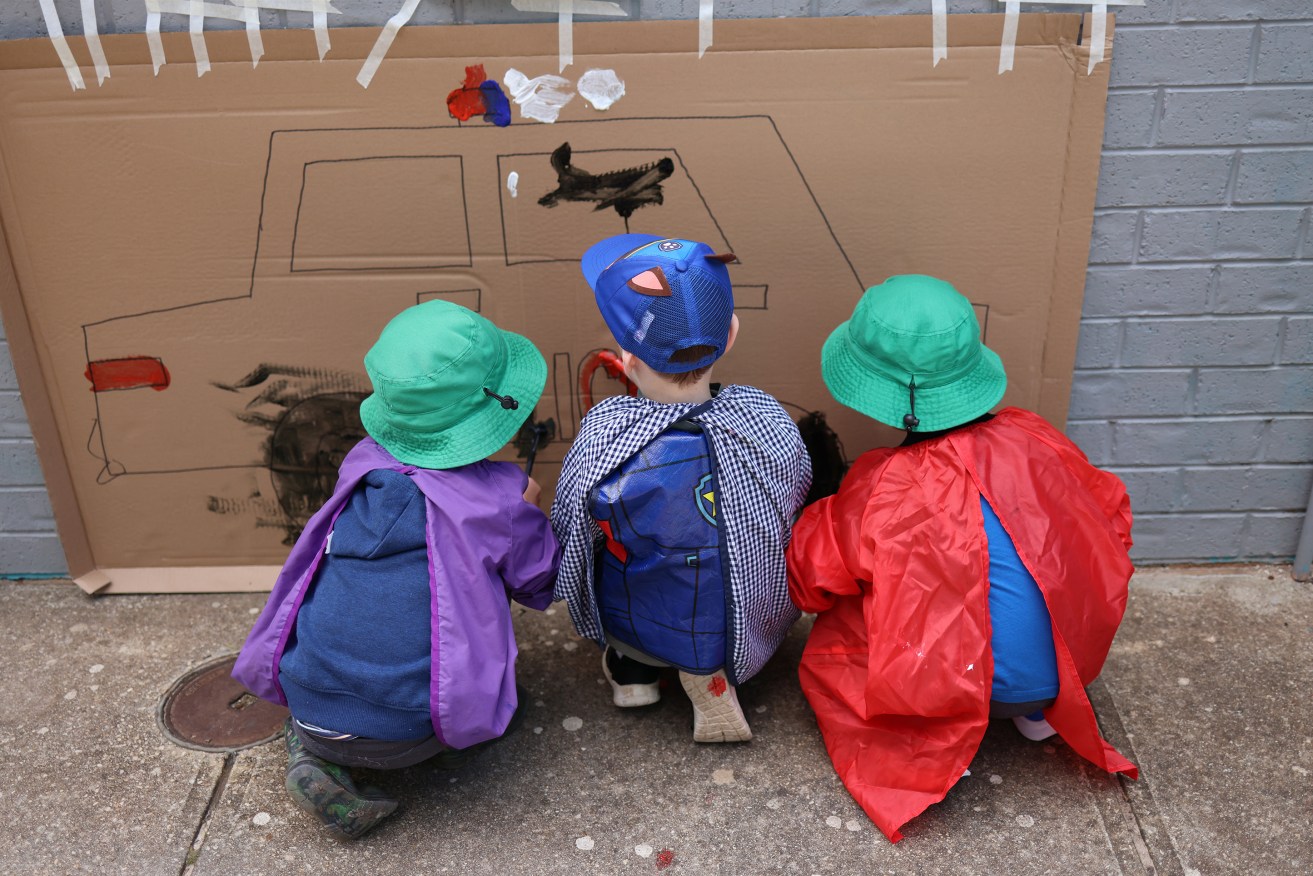Surge in new childcare centres ‘overtaking SA birth rate’
New childcare centres are being built at “three times the birth rate” in parts of South Australia as national chains threaten the future of existing businesses forced to compete for trained staff and to fill places, according to the industry peak body.


Childcare builds are surging in SA as national chains move into the state. Photo: Tony Lewis/InDaily
Australian Childcare Alliance (SA) president Kerry Mahony said there had been a surge in new childcare centres built over the past four years “and I’d be surprised if there are not 15 to 20 being built in Adelaide at the moment” without any analysis of whether they are needed.
“One of our members in the western suburbs said there used to be four childcare centres in their area and it now has 14,” Mahony, whose alliance represents about 120 private centres, said.
“They are building centres that I think are (catering for) sometimes around three times the birth rate, they are building at a far greater rate than the birth rate.
“We are absolutely concerned on two fronts; first of all they are taking staff to start new centres and, secondly, they are taking children that would keep numbers at the right levels in centres already in existence.”
The alliance wanted more state and federal intervention before new childcare centres are approved, with rules similar to those in the 1990s where applicants needed to show data proving there is demand to support a new childcare business in a region.
Mahony said national figures showed that 80 per cent of childcare centre owners in Australia have one or two sites, but national chains were growing their footprint quickly in SA and in particular creating new purpose-built facilities.
However, Mahony said this increasing numbers of new centres is exacerbating problems for childcare centres already struggling to fill jobs requiring staff trained in certificate III early childhood education and care, plus early childhood teaching.
He is concerned smaller centres could be squeezed out of business and the larger chains would then control childcare pricing more easily.
“We are working with the federal government to try and find solutions to the availability of more staff but no one seems interested in the question of proliferation of centres for some reason,” Mahony, who owns a childcare centre in Brooklyn Park and another in Glandore, said.
Childcare centres are also battling to cover high numbers of staff absences as cases of influenza and COVID infections continues to rise as winter approaches.
There are 452 childcare centres operating in the state, privately owned, national group Green Leaves Early Learning now has 11 purpose-built facilities while one of the nation’s largest childcare providers not-for-profit Goodstart Early Learning has more than 50.
Stepping Stone company directors George Skrembos and Danny Scinto oversee 25 centres in SA having started building childcare centres for interstate clients in 2003 through their Eastern Building Group and becoming “increasingly aware of the need for purpose built quality childcare facilities” in this state.
Education, Training and Skills Minister Blair Boyer was concerned about new centres being built in metropolitan areas “where capacity already exists rather than regional South Australian towns with established waiting lists and no available long day care”.
He urged the private sector to assist both state and federal governments “with the heavy lifting in addressing the shortfall in long day care options for South Australian families outside the metropolitan area”.
Childcare centres that meet the quality benchmarks set out in the National Quality Standard are eligible for service approval through the Education Standards Board (ESB).
“The ESB does not have grounds to refuse service approval on the basis of market oversupply, and has no oversight of proposed childcare services until such time as they apply for a service approval,” Boyer said.
He acknowledged the workforce shortage in Early Childhood Education and Care saying that was the reason why the State Government had ensured the Certificate III and the Diploma in Early Childhood and Care were listed on the fee-free TAFE course list.
“I’ve been so pleased to see that there has been a huge demand in people taking up this offer – with course costs no longer a barrier to enter this critical workforce,” Boyer said.
The Royal Commission into Early Childhood and Care is also looking at workforce issues more broadly, as well as access for those most vulnerable cohorts.




